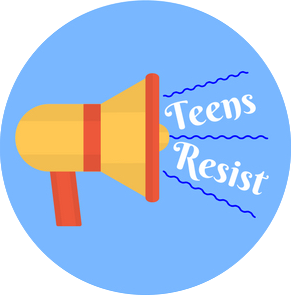LISTSOur biweekly lists lay out notable issues in the news and tell you what you can do about them.
|
SUBSCRIBE TO EMAIL UPDATES:
|
|
Hello Teen Resisters! This week has been chock full of important and complex news. We're here to unpack it all and give you some guidance. We've included a briefing and action at the beginning about the recent news of the Trump admin's new anti-trans efforts. In addition to sending these resources your way, we are sending love and support to our trans and gnc family. We hope that you are taking care of yourself and doing ok in the face of all of this media, both the bigoted parts and the performative ones. So let's jump in: *The briefing on the trans memo was written by Kai Franks. They are not a staff writer and therefore do not have their name on the website, so this is to give them credit where (brilliant) credit is due.* What Went Down:
Don't forget to take care of yourself after all this unfortunate news! Sending love and light.
PUPPY VIDEO!
0 Comments
10/10/2018 0 Comments A Wake-Up Call: Sept. 25th-Oct. 10thHey Teen Resisters! These past two weeks have been more tumultuous and emotional than ever. Here, we’ve laid out some key happenings: the Violence Against Women Act, family separation updates, climate change developments, and the recent passing of Indigenous Peoples' Day. We are sending infinite amounts of support and love; sometimes, things like Kavanaugh's confirmation can seem like defeats--and they're really, really tough--but they don't define resistance or make it pointless in any way. Keep calling, signing, campaigning, and protesting!! peace&power, TR p.s. We're honored to publicize a super cool opportunity for NY State high schoolers: start a chapter of Coalition Z at your school! As defined by their website, Coalition Z is a national, youth-led, peer-to-peer network of chapters taking political action and engaging young people in our democracy. Their work involves traveling for lobbying and campaigning, planning and running events and initiatives, and more. If you're interested even the slightest bit, DM @coalitionz.hchs on Instagram or email hchscoalitionz@gmail.com for more information!!
The hearing was followed by an insufficient and brief FBI investigation that consisted only of nine interviews (not including ones with either Kavanaugh or Dr. Ford). Despite Dr. Ford’s testimony, recognized as credible by a multitude of senators and other individuals, Kavanaugh was confirmed to the Supreme Court. Following the confirmation, protestors stormed the steps of the U.S. Supreme Court, and 164 of them were arrested by U.S. Capitol Police. All of this leads to this question: how could Kavanaugh become dangerous? His past actions indicate that he could potentially endanger Roe v. Wade, the ruling that legalized abortion nationwide. Kavanaugh’s other stances include increasing the power of the executive branch and reducing gun control. The decision to confirm Kavanaugh shows a disregard for women and for survivors, one that has been echoed by President Trump’s remarks throughout the entire confirmation hearing process. Trump has gone as far as to mock Dr. Ford’s testimony, and has made such statements as, “It’s a very scary time for young men in America.” What You Can Do: Vote (or tell everyone you know above 18 to vote)! On November 6th, every seat in the House of Representatives and a third of seats in the Senate will be up for reelection. A great way to show your support for a candidate even if you can’t vote is to volunteer by calling. Check out this TR list to find some candidates that we support and how to call them. Expiration of the Violence Against Women Act: The Violence Against Women Act (VAWA) is a piece of federal legislation that was signed into law by President Bill Clinton in September of 1994. The VAWA is largely seen as the aftermath of Clarence Thomas’s hearing to be a Supreme Court judge, during which Anita Hill accused him of sexual harassment. The VAWA is legislation that expands the funds and the judicial tools available to fight violence against women and to give protection to women who have experienced sexual abuse. The reauthorization of the act in 2013 was largely opposed by conservatives. The Act was going to expire September 30th, 2018, but was extended and is now set to expire on December 7th, 2018. Expiration of the VAWA will result in a large loss in funds for social service agencies that help victims of sexual violence. Cases of sexual violence against women will become much harder to prosecute in the absence of this act. What You Can Do: Call your representatives! Ask that they sign on as a co-sponsor of the Violence Against Women Act. You can find your representative by using this link, and you can see if they have signed on to support the VAWA by using this link.
On a separate but also horrifying note, more than a thousand children who arrived at the border as unaccompanied minors have been shipped to a tent city in Tornillo, Texas, which is relatively unregulated and doesn’t provide any formal education to its residents. The move is an attempt to manage the record of more than 13,000 immigrant children who are in government custody right now, straining the capacity of the shelters and foster homes. The problem was made worse by a new policy that orders potential sponsors of immigrant kids—many of whom have tended to be undocumented immigrants themselves —to submit fingerprints in order to have a child placed in their care. This deters potential foster parents from coming forward out of fear of their own status being discovered. This policy has resulted in the inhuman situation that’s currently ongoing, and it’s unacceptable. What you can do:
These problems are emergency issues that demand immediate, short-term solutions, but they’re also symptoms of a broader problem: a strained immigration system incapable of carefully and humanely receiving the countless migrants that come to our borders every year, and a slate of politicians far too disinterested in caring for them as people—often families—in need of help. The best thing we can do to try to find a sustainable solution (besides running for office, when we can!) is to replace racist, xenophobic, or just lethargic politicians with leaders committed to making America a refuge for immigrants. So… the midterms are in four weeks (!) - check out our various features and updates on the midterms to take action! *Information on this figure is difficult to determine, due to varying numbers offered, and the fact that things could have changed since the publication of most readily available articles.
And here’s what you can do:
For one, North and South America were already occupied by a multitude of Native tribes, meaning that Columbus “discovering” America is a notion so false it’s almost laughable. In fact, his arrival in 1492 began the exploitation and genocide of Native Americans that is still ongoing to this day. Columbus and his crew stole land from the Arawak and Taino tribes, in addition to exploiting them, colonizing their land, pillaging and wrecking their communities, uprooting them, forcing them to assimilate Christianity, raping their people, enslaving them, and murdering them. The mistreatment, exploitation, and displacement of Native Americans in America is still rampant today. This “Columbus Day” and every second Monday of October to come, you can celebrate Indigenous People’s Day (as declared by many counties in the US already since 2017!) by doing the following:
On that final note, happy Indigenous Peoples' Day to everyone! In lieu of our puppy vid this week, we're linking to SNL's Kavanaugh-themed cold open (it's clearly an incredibly serious topics, but sometimes humor can make things, however awful, feel just a tiny bit better).
|
UPdatesThese lists include featured organizations, scripts, numbers, news updates and inspirational activists. Archives
January 2022
Categories |
About |
Content |
|
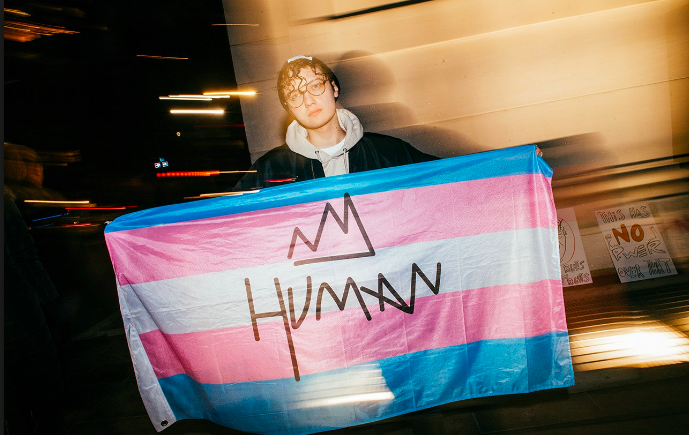


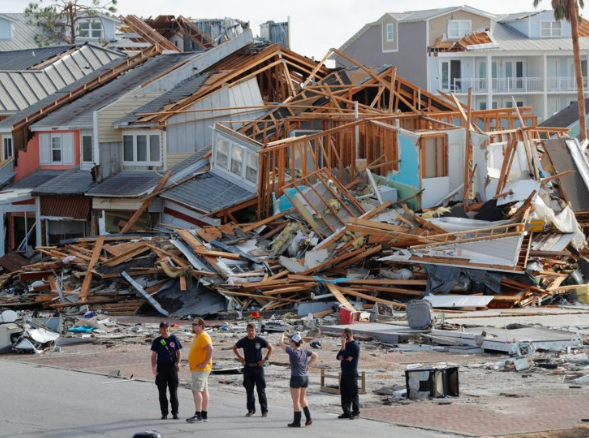
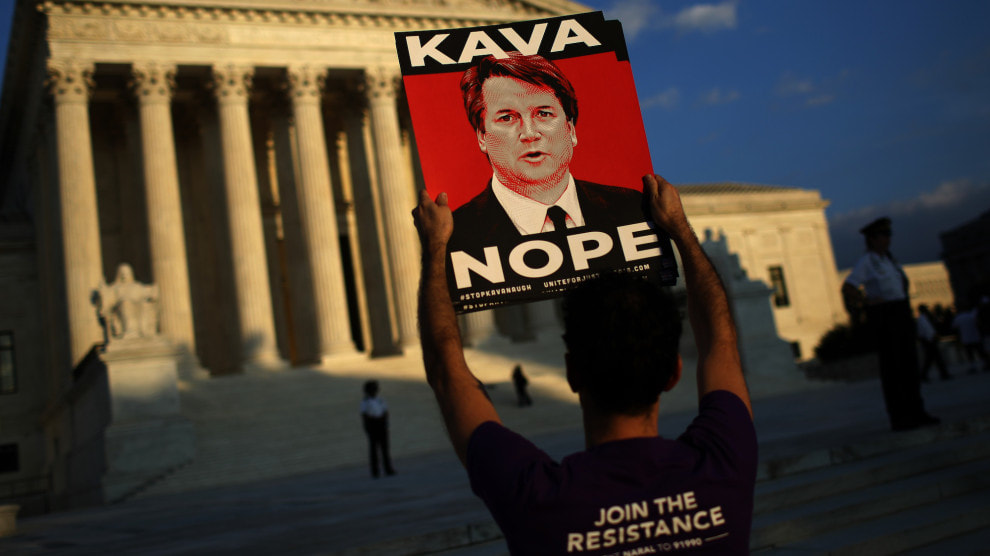
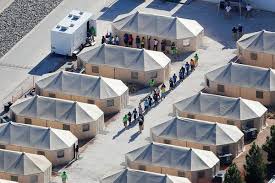
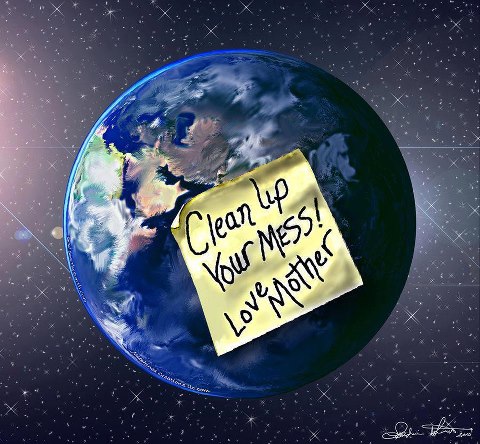

 RSS Feed
RSS Feed
